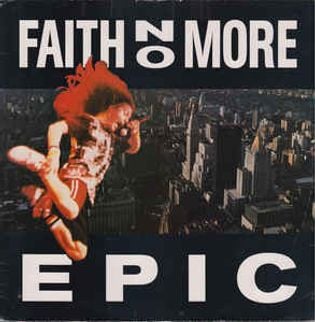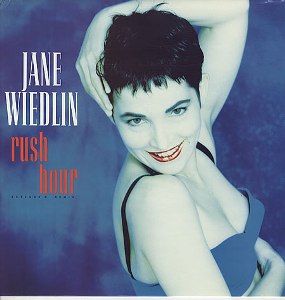 Bob Marley’s “Could You Be Loved” is more than just a reggae anthem—it’s a spiritual groove, a philosophical message, and a defiant celebration of love and self-worth that pulses with life decades after its release. Issued in 1980 as part of Marley’s final studio album with the Wailers, Uprising, the song became one of his most globally accessible and beloved tracks. With its infectious rhythm, pointed lyrics, and universal chorus, “Could You Be Loved” occupies a rare space in music history—where danceability and deeper meaning coexist effortlessly. It’s a song that invites you to move your body while quietly compelling you to open your mind.
Bob Marley’s “Could You Be Loved” is more than just a reggae anthem—it’s a spiritual groove, a philosophical message, and a defiant celebration of love and self-worth that pulses with life decades after its release. Issued in 1980 as part of Marley’s final studio album with the Wailers, Uprising, the song became one of his most globally accessible and beloved tracks. With its infectious rhythm, pointed lyrics, and universal chorus, “Could You Be Loved” occupies a rare space in music history—where danceability and deeper meaning coexist effortlessly. It’s a song that invites you to move your body while quietly compelling you to open your mind.
At a glance, “Could You Be Loved” might seem like one of Marley’s most straightforward compositions. Its buoyant tempo, catchy chorus, and seamless fusion of reggae and pop make it sound almost effortless. But underneath that smooth exterior lies a profound meditation on love, identity, societal judgment, and the struggle to remain true to oneself in a world eager to control and categorize. Marley was always more than a musician; he was a messenger. And in “Could You Be Loved,” he distills some of his most enduring themes into a song that remains both sonically timeless and thematically urgent.
Musically, the song is a masterstroke. Its opening features a simple but hypnotic guitar riff, instantly memorable and undeniably danceable. The rhythm section is tight, locked into a groove that borrows from disco, funk, and reggae all at once. The drum pattern is crisper and more forward-driving than in many of Marley’s other works, making the track immediately accessible to international audiences who might not have been immersed in traditional Jamaican rhythms. The production is polished but not sterile, and Marley’s voice sits perfectly in the mix—commanding but never overwhelming. The backing vocals from the I-Threes add texture and gospel-like warmth, enhancing the track’s spiritual resonance.
The refrain, “Could you be loved and be loved?” repeats like a mantra. It is deceptively simple, but loaded with complexity. Marley doesn’t ask “Are you loved?” or “Do you love?” Instead, he asks whether you are capable of being loved and of allowing love. That dual meaning opens up a deep internal inquiry. It’s a question of self-worth, of vulnerability, of whether you have made peace with yourself enough to accept love from others—and perhaps more importantly, to give it freely. There is something almost biblical in that phrasing, echoing themes of unconditional acceptance, mercy, and the battle between spiritual fulfillment and worldly distraction.
Throughout the verses, Marley offers guidance with the clarity of a sage. He warns of hypocrisy, of being swayed by public opinion, of becoming entangled in the artificial standards set by others. “Don’t let them fool ya,” he sings, “or even try to school ya.” It’s not just a warning against deceit—it’s an admonition to stay awake, to trust your instincts, to recognize when people are trying to fit you into molds that don’t align with your spirit. Marley was always acutely aware of the forces—political, racial, religious—that sought to suppress individuality and freedom. Here, his call is both deeply personal and universally political: know yourself, love yourself, and resist those who would have you live less than your truth.
Later, he delivers one of his most striking lines: “The road of life is rocky, and you may stumble too. So while you point your fingers, someone else is judging you.” It’s Marley at his most philosophical, reminding listeners that judgment is a cycle—what we give out often returns to us. It’s a gentle but firm indictment of hypocrisy, a plea for compassion and humility. Everyone falters. Everyone stumbles. Therefore, to truly embrace love, we must move beyond blame, beyond division, and into a more forgiving, understanding posture toward ourselves and others.
It’s impossible to separate “Could You Be Loved” from the context in which it was released. By 1980, Bob Marley was not just a reggae star—he was a global icon, a prophet in dreadlocks whose voice carried the struggles of the oppressed and the hopes of the marginalized. He had survived an assassination attempt in 1976 and had spent the late ‘70s touring the world, spreading messages of peace, revolution, and Rastafarian philosophy. At the same time, his health was quietly deteriorating. Diagnosed with melanoma in 1977, he was battling cancer as he recorded Uprising, and while he didn’t publicly discuss the extent of his illness, there’s a sense in “Could You Be Loved” of an artist trying to leave behind a legacy not of despair, but of upliftment and joy.
Unlike some of Marley’s earlier anthems like “Get Up, Stand Up” or “Exodus,” which are more overtly political, “Could You Be Loved” radiates warmth. It’s not a call to arms—it’s a call to heart. But that doesn’t mean it lacks edge. Marley’s genius was his ability to wrap deep critiques of society in rhythms that made people dance. Here, he disguises existential questions and moral challenges in the sugar of pop-inflected reggae. It’s a spoonful of musical honey that carries the medicine of truth.
The international success of the song also marked a key moment in the mainstreaming of reggae. While Marley had long been a superstar in Jamaica and among reggae fans worldwide, “Could You Be Loved” brought him further into the pop spotlight. It charted in multiple countries, received significant radio play, and became a staple of Marley’s live performances. Its crossover appeal wasn’t just because of its production—it was because the message resonated across cultures. Everyone, regardless of language or background, understands the need to love and be loved. Everyone faces judgment. Everyone wrestles with identity. Marley tapped into the universal by drawing from the deeply personal.
His live performances of the song were transcendent. Marley had a way of turning concerts into spiritual gatherings, and “Could You Be Loved” became one of his most powerful tools for uniting a crowd. Arms swayed, voices joined in chorus, and for a few minutes, thousands of people would move as one. The song’s groove created physical unity, while its lyrics offered emotional and spiritual communion. It wasn’t just entertainment—it was transformation.
Marley’s use of repetition throughout the track is also significant. The chorus cycles over and over, but never becomes tiresome. Instead, it deepens with each pass, almost like a chant or affirmation. In reggae, repetition is often used to reinforce messages, to drive them into consciousness through rhythm. Here, Marley turns a question into a meditation. With every “Could you be loved?”, he chips away at the listener’s defenses, nudging them closer to self-examination and acceptance.
The song’s legacy is immense. It remains one of Marley’s most streamed and covered tracks, appearing in films, commercials, and soundtracks, and performed by artists from all genres. Yet it has never lost its power. Part of that is due to the song’s universality, but much of it stems from Marley himself. His authenticity, his conviction, and his unwavering commitment to spreading love and justice imbue the track with lasting soul. When he sang “Could You Be Loved,” he wasn’t just performing—he was testifying.
There is also a profound sadness in the timing of its release. Uprising would be Bob Marley’s final studio album. Less than a year after “Could You Be Loved” hit the airwaves, Marley would pass away at the age of 36. That lends the song an extra layer of poignancy. It’s not just a love song—it’s a farewell, a benediction, a final offering. Marley could have chosen anger or despair as his parting message. Instead, he gave the world this: a groove, a smile, a question.
The brilliance of “Could You Be Loved” lies in that question. It doesn’t assert, demand, or explain. It simply asks. And in doing so, it invites the listener into dialogue—not just with the music, but with themselves. Can you be loved? Do you believe you are worthy of love? Can you give love freely, without condition or judgment? These are the questions Marley leaves us with, and they are as relevant today as they were in 1980.
In a world increasingly defined by division, disconnection, and cynicism, “Could You Be Loved” stands as a shining counterpoint. It reminds us that love is a choice, a path, a way of being. It’s not passive or weak—it’s powerful. To be loved, and to love in return, requires courage. It demands presence. It asks us to resist fear, shame, and conformity. It challenges us to embrace ourselves and others with open hearts.
That’s the message Marley wanted to leave behind. Not just in this song, but in his entire body of work. He sang of revolution, yes—but also of redemption. He warned of Babylon, but he also sang of Zion. And with “Could You Be Loved,” he gave us one of his purest, most enduring gifts: a song that dances, questions, uplifts, and unites. It is, perhaps, his most generous song—one that doesn’t push an agenda, but opens a door.
And so the beat goes on. The question lingers. “Could you be loved, and be loved?” It loops in our ears, in our hearts, in the crowded clubs and quiet headphones where the song continues to live. Bob Marley may be gone, but his question lives forever. It’s not just a lyric. It’s an invitation. An awakening. A mirror. And for anyone willing to answer it honestly, it just might be the beginning of something sacred.


